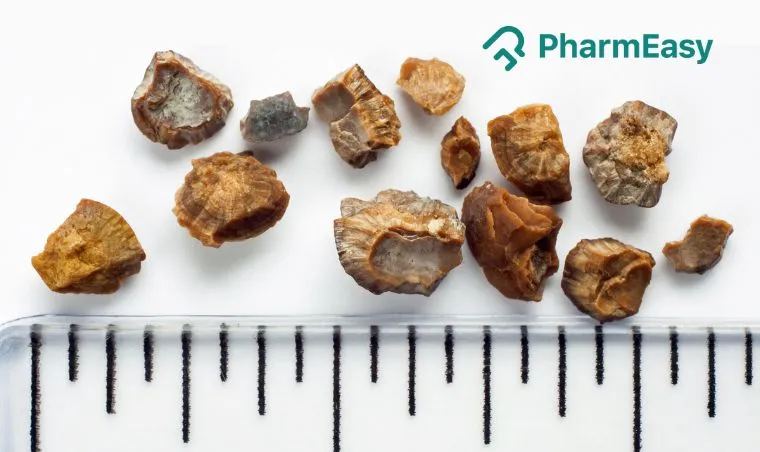Qupin 25mg Tablet
Description
Qupin (slow release) tablet is used to manage psychotic disorders like Schizophrenia and Bipolar disorder. Managing manic episodes and depression associated with Bipolar disorder are the other uses o
f Qupin tablets. These psychiatric conditions affect the person's ability to think, feel, and behave correctly. This medicine can be used in children over the age of 10. Qupin tablet Tablet has Quetiapine as a single active ingredient. It belongs to a class of atypical antipsychotic medicines. Qupin tablet stabilises the levels of certain chemical messengers, which help manage the mood and lower the overactivity in the brain. Follow your doctor's direction for use of Risperdal tablets. This medicine can cause death in elderly patients with memory loss associated with psychotic disorders. It can also cause suicidal thoughts in young adults. Try not to stop using the Qupin tablet suddenly as it can cause withdrawal symptoms like irritation, vomiting, sweating, etc. It is not a habit-forming medicine and does not cause dependency.
Product Summary
| Offer Price | ₹19.27 |
| You Save | ₹7.13 (27% on MRP) |
| Contains | Quetiapine(25.0 Mg) |
| Uses | Schizophrenia, acute mania in bipolar disorder, depression in bipolar disorder |
| Side effects | Appetite increased, Fatigue, Upper respiratory tract infection, Vomiting, Increased saliva, Constipation, Anxiety, Urinary incontinence |
| Therapy | ANTI-PSYCHOTICS |
Uses
- As per CDSCO or USFDA, Qupin tablet is an atypical antipsychotic indicated for -
- The treatment of Schizophrenia (manages both positive and negative symptoms like hallucination, delusions, lack of pleasure, memory problems, cognitive problems, etc.)
- Managing manic episodes in Bipolar disorder
- The management of depressive episodes of Bipolar disorder
Contraindications
- If you’re allergic to Quetiapine or any other component of Qupin Tablet.
- If you are an elderly patient diagnosed with dementia-related psychosis. There is an increased risk of stroke and even death.
- If you are under treatment with other antipsychotic medication.
- If you have neuroleptic malignant syndrome (a neuromuscular disorder).
- If you have tardive dyskinesia (sudden jerky movements).
- If you have diabetes with uncontrolled glucose levels and high cholesterol levels.
- If you had a history of stroke or other similar conditions.
- If the child or adolescent sees changes in blood pressure.
- If you have a history of seizure disorder.
- If you have a low white blood cell count (leukopenia or neutropenia). Monitor blood count frequently.
- If you are using treatment of Parkinson's disease or dementia with Lewy bodies.
- If you are diagnosed with a tumour on the adrenal glands, this medicine can cause life-threatening high blood pressure.
- If you have cataracts, it worsens in patients with long term treatment.
Side effects
- Drowsiness
- Dry mouth
- Dizziness
- Constipation
- Abdominal pain
- Sudden fall in blood pressure
- Weight gain
- Lethargy
Precautions and Warnings
Pregnancy
Breast Feeding
Driving
Alcohol
Other General Warnings
- You have suicidal or self-harming thoughts.
- You are using any herbal or ayurvedic medicines or supplements, some of them can interfere with this medicine.
- You are an elderly patient over the age of 65.
- You have diabetes. You must monitor your blood glucose levels, as this medicine can cause fluctuations in blood glucose levels.
- You have low blood pressure. This medicine causes orthostatic hypotension (sudden lowering of blood pressure with change in position).
Mode of Action
How Does It Work?
Directions for Use
- Take Qupin tablets just as the doctor prescribed to you.
- Do not change the dose of Qupin tablet, even if you do not see its effects.
- Do not try to break the Qupin tablet or chew it. Take the tablet as a whole with a glass of water.
- It is better to not take it with other medications without informing your doctor.
- Do not use Qupin medicine if its packaging has been already opened.
- Do not suddenly stop taking the Qupin tablet, as it can cause adverse effects from withdrawal.
Interactions
Interactions with other medicines
- Qupin Tablets with levodopa (used for Parkinson’s disease) may have opposite effects.
- Use caution when taking medicines that lower blood pressure while using Qupin Tablets, as it can further lower the blood pressure.
- Medicines, like fluoxetine and paroxetine, have been shown to increase the levels of Qupin medicine.
- If you take tablets that lower heart rate, Qupin can reduce heart rate more.
- If you are on other antipsychotic, anti-seizure medications, or antidepressants, using them with Qupin Tablets can have severe effects.
- Use other sedatives cautiously, such as antimalarial, heart, anti-allergy, etc. On interaction, all of them can cause increased drowsiness.
Interactions with food items
- Avoid having grapefruit juice or fruit. This medicine interacts with grapefruit and blocks its metabolism, possibly increasing its blood levels.
- Do not take herbal medicine St John’s wort. It increases serotonin levels, leading to a severe condition called serotonin toxicity.
Storage and disposal
Dosage
Overdose
Missed a Dose
Content Details
Dr. Varsha Parihar
MBBS, MD (Community Medicine)
Frequently Asked Questions (FAQs)
Q: Can Qupin tablets cause weight gain if I use them regularly?
Q: Can I take Qupin Tablets if I have diabetes?
Q: Do Qupin Tablets cause dependency or addiction issues if I take them for a long time?
References
- Quetiapine: Medlineplus drug information [Internet]. MedlinePlus. U.S. National Library of Medicine; [cited 2022 Feb 27]. Available from:
- CDSCO [Internet]. Cdscoonline.gov.in. 2022 [cited 2022 Feb 27]. Available from:
- SEROQUEL® (quetiapine fumarate) tablets, for oral use. Initial U.S. Approval: 1997. Accessdata. FDA. gov (quetiapine) orally disintegrating tablets [cited 2022 Feb 27]. Available from:
- Quetiapine [Internet]. Drugs and Lactation Database (LactMed) [Internet]. U.S. National Library of Medicine; 2022 [cited 2022 Feb 27]. Available from:
Did you find this medicine information helpful?
Please rate your experience



















